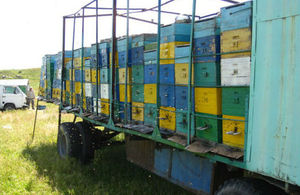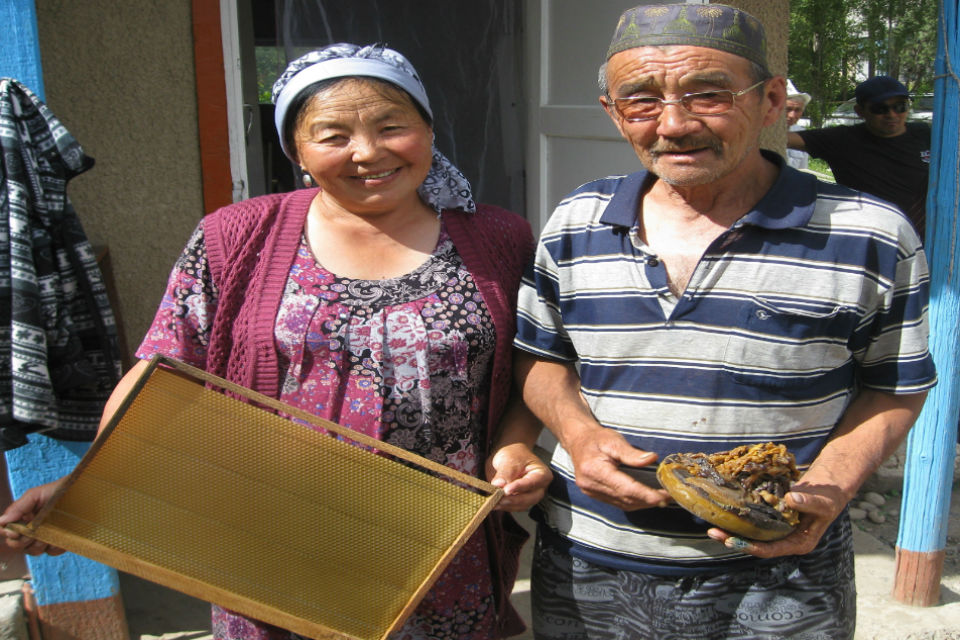Darwin Scoping Award: sustainable livelihoods
A Darwin Initiative scoping award led to a successful main project encouraging beekeeping as a sustainable livelihood in Kyrgyzstan

Moving the hives to new pastures
In Kyrgyzstan, central Asia, traditional nomadic ways of making a living and growing food are becoming more vulnerable to environmental damage. Population growth is putting added pressure on these ecosystems as rural areas are suffering from over-grazing by cattle.
Since the 1980s, the number of beekeepers in Kyrgyzstan has dropped dramatically. There has been increasing conflict between beekeepers and local cattle herders over access to mountain pastures. Many young people do not see the importance of beekeeping and are choosing different, less sustainable livelihoods. Yet beekeeping has the potential to restore the native honey bee population, provide sustainable livelihoods and increase biodiversity by increasing the number of pollinators in the region.
This Darwin funded scoping project was developed to engage with local partners to build relationships and better understand the conservation status of the Apis mellifera honey bees. The project hoped that the scoping visit would increase awareness of the importance of beekeeping in providing sustainable incomes for future generations of nomadic populations.

Kyrgyz Beekeepers
Scoping award opportunity
The Scoping award allowed the project leaders to visit Kyrgyzstan, a country that the lead organisation had never worked in, and allowed them to develop strong working relationships with local partners. This partnership contributed to the development of a strong main project proposal that was based on local needs. The relationships formed during the scoping visit contributed to the ability of the main project to engage the community in beekeeping, increasing the long term impact of the project.
The main project works with young herders to show them that beekeeping can be an important way of making a living in rural areas. Beekeeping can help young people to stay in their ancestral homes and not have to move to urban areas to find work. To do this the project has provided training to 60 young Kyrgyz herders in the pastures of Chon-Kemin.
Most beekeepers are of Russian ethnicity and move hives on the back of lorries to access different pastures as the flowering season rolls up the Kyrgyz hills. To help these people, the project is lobbying for a Law on Beekeeping to be introduced to help non-local beekeepers access pastures. This will provide beekeepers with better legal rights and access to pastures so they can continue beekeeping. The project hopes to improve people’s lives by promoting a livelihood that improves biodiversity, reduces the impacts of overgrazing, and provides a sustainable for future generations.